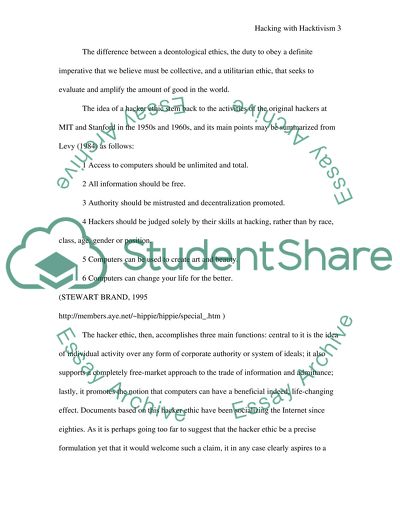Cite this document
(“Hacking and Hacktivism Essay Example | Topics and Well Written Essays - 3000 words”, n.d.)
Retrieved from https://studentshare.org/technology/1523056-hacking-and-hacktivism
Retrieved from https://studentshare.org/technology/1523056-hacking-and-hacktivism
(Hacking and Hacktivism Essay Example | Topics and Well Written Essays - 3000 Words)
https://studentshare.org/technology/1523056-hacking-and-hacktivism.
https://studentshare.org/technology/1523056-hacking-and-hacktivism.
“Hacking and Hacktivism Essay Example | Topics and Well Written Essays - 3000 Words”, n.d. https://studentshare.org/technology/1523056-hacking-and-hacktivism.


